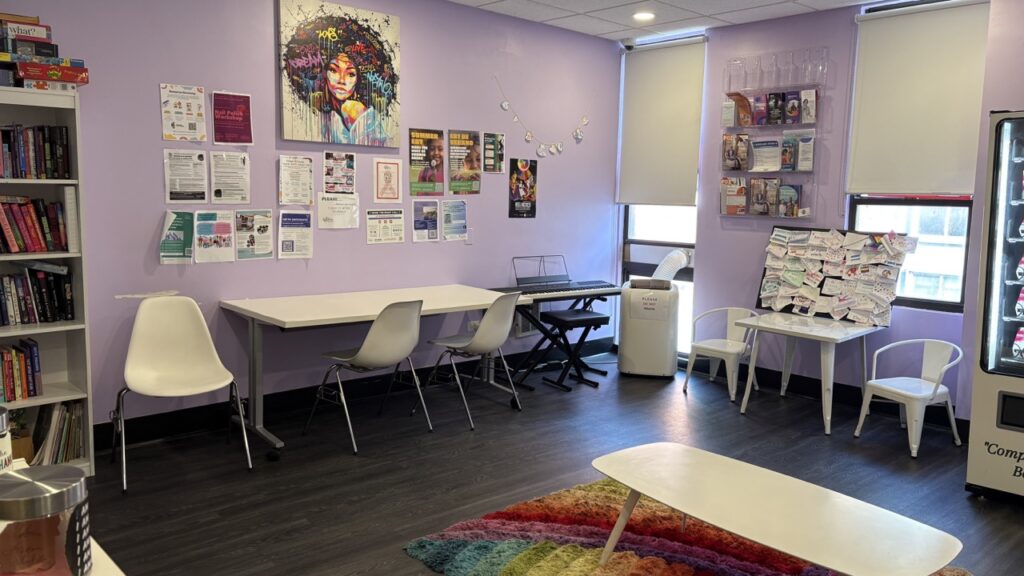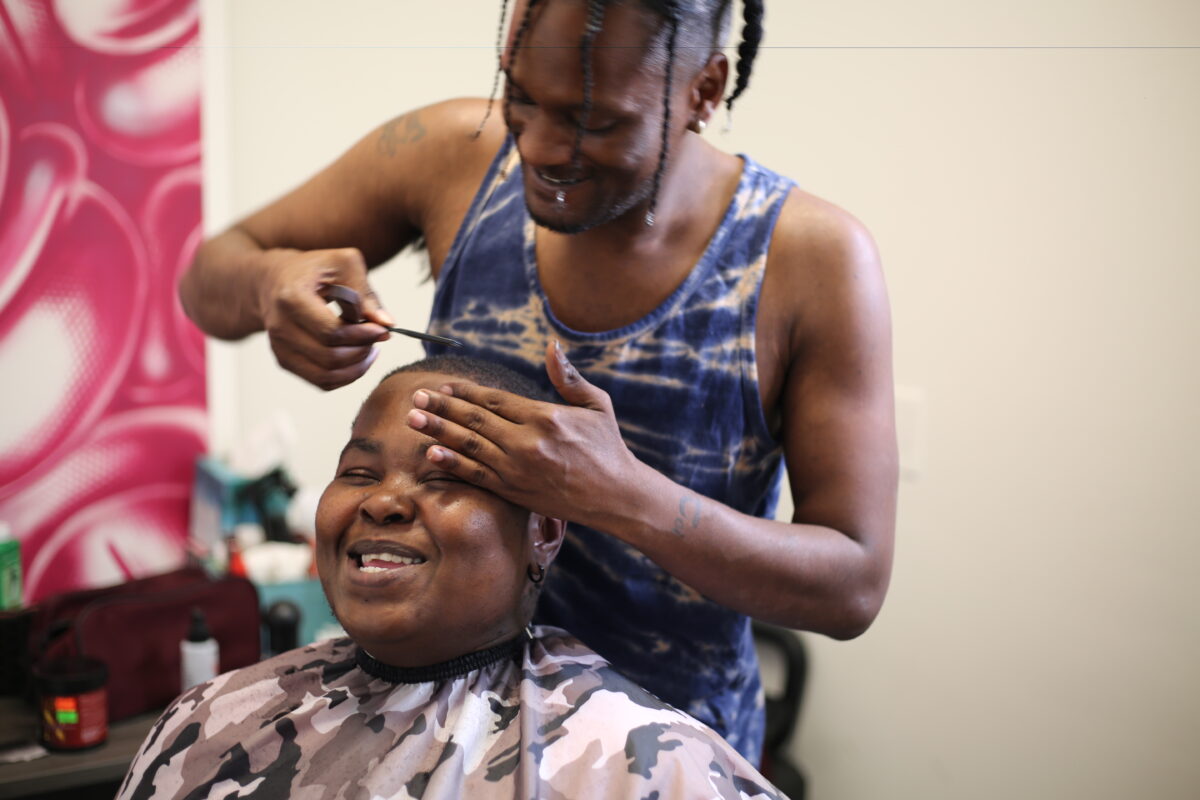Brave Space Alliance doesn’t just provide services—it provides sanctuary.
From its founding in 2016 to address a gap in South Side LGBTQ+ services, through COVID-19 disruptions, leadership transitions, and growing pains, Brave Space Alliance has learned that survival means more than endurance—it means adaptation.
In summer, a cooling sanctuary; in winter, a place to gather warmth. Year-round, the Black-led LGBTQ+ center welcomes any and everybody from different walks of life—trans women and seniors, youth aging out of systems, people who need a place to simply breathe.
This sanctuary knows something about survival—not just for the people it serves, but for itself. When rapid growth led to overcrowding and internal challenges in 2022, including the departure of founding executive director LaSaia Wade, Brave Space Alliance rebuilt itself under CEO Channyn Lynne Parker’s steady hand. The organization that was founded in 2016 to serve an underserved population had grown beyond its original capacity. Now, as Parker prepares to join Equality Illinois this November 2025, the organization stands on foundations designed to last. The transition itself signals how far they’ve traveled: their leader is being recruited to head the state’s largest LGBTQ+ organization.
Jahiem Jones, twenty-two, embodies the kind of survival this place teaches—not just enduring, but thriving. As Outreach Coordinator, he moves through spaces that have weathered their own challenges, guiding visitors through rooms that breathe with hard-earned wisdom.
“We treat these people as human beings, because that’s what they are,” Jones said. “Most of them have been thrown out of homes, kicked out when they were younger, struggling just to survive. So for them, it feels good that we hear them. That we see them.”
Behind a discreet entrance on 52nd Place, a bright red elevator carries people up to the third floor, where they find everything they need to survive and thrive. The free food pantry fills bags every two weeks, while the “dignity suite” offers more than clothes—it provides gender-affirming items including shoes, makeup, hair products, hygiene products, and everyday essentials that help people see themselves reflected with integrity. Computer stations hum with the quiet work of building futures: job applications, school enrollment, staying connected.
“When we take them in our dignity suite, that’s kind of a one on one time for us to bond and connect with them,” Jones said. “Sometimes it is crying going on because we’re sharing stories back and forth.”
Over in the Nest Room, healing happens on yoga mats instead of in clinical chairs—therapy that meets you where you are, literally. Trans folks can access essential items twice a week, understanding that basic needs don’t follow traditional schedules. Barbershop days every second and fourth Wednesday offer more than haircuts; they’re community gatherings. Transformation Tuesday makeovers celebrate identity and self-expression.
The drop-in space might be the most radical service of all—a place where people can simply exist without having to earn their presence through participation or proof of need. Some days bring more than eighty people seeking services, far beyond what the space was designed to hold. It’s evidence of trust rebuilt after years of uncertainty—during the pandemic, Brave Space Alliance had to reduce hours and shift services online, creating crisis pantries for vulnerable community members. The crowds now represent recovery: proof that when people know they’ll be treated with dignity, word spreads faster than any marketing campaign. Rather than turning people away, staff have learned to manage the flow—staggering service times, creating waiting areas, and ensuring everyone who walks through that red elevator gets what they need.

Bus cards wait at the front desk for anyone heading to doctor appointments or job interviews, small rectangles of possibility that remove transportation as a barrier to dreams. A resource vending machine from the Kenneth Young Center provides Narcan and drug testing strips, acknowledging that harm reduction is healthcare too, available without questions or judgment.
“I think what makes our participants come back to Brave Space is they know that this space here, this is a safe space,” Jones says. “This is a space that welcomes me. This is a space that is here to help me.”
The programming extends beyond these walls. Every Thursday at 2747 W. 79th St., Vogue University offers workshops in voguing and runway to youth from across the city. More than dance lessons, it’s a space where ballroom culture meets healing—where movement becomes medicine and community forms through shared rhythm.
At Brave Space Alliance, they see the whole you. Every person who rides that bright red elevator up discovers what it feels like to be witnessed completely, held entirely, and loved without condition.
Brave Space Alliance, 1515 E. 52nd Place, 3rd Floor, Chicago, IL 60615, 872-333-5199. Office hours: Monday-Thursday, 9am-5pm. Drop-in hours: Monday-Thursday, 10am-4pm; Friday, 10am-2pm. For more information, visit bravespacealliance.org.
Robert Speed Jr. is a contributor to the Weekly.

